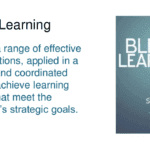This website uses cookies so that we can provide you with the best user experience possible. Cookie information is stored in your browser and performs functions such as recognising you when you return to our website and helping our team to understand which sections of the website you find most interesting and useful.
Grief at Work: How to Help People

How to Help People with the Unbearable
“ No one ever told me that grief felt so like fear. ”
– C.S. Lewis
Lately, I’ve been thinking a lot about grief. I live in Santa Barbara, CA, where the tragic boat fire and loss of 34 lives happened only miles from my home. As we were waiting to learn the names of the victims, my community was thrown into collective PTSD since we had lost 23 of our friends, neighbors, and coworkers only months before in the mudslides. Everyone I know, myself included, has been impacted as the news stirred up memories of previous losses and tragedies. We gathered at the water’s edge, placing flowers, lighting candles, and singing our sorrow for the souls who had been on that diving trip.
In recent weeks, loss through hurricanes, floods, mass shootings, highway accidents, and illnesses have thrown many more into grief as well. Grief is something most of us don’t really want to think about, so we often avoid it until we are confronted with a loss. But the truth about grief is that we will all experience it numerous times in our life, and it requires a special kind of emotional intelligence, one that is supercharged on compassion and empathy.
Grief is the painful cost of loving or caring for others and it does not honor the border between our personal and professional lives. Grief rips through those artificial boundaries as it tears down the normalcy of our daily experience, creating a new normal that we do not want, but yet have to step into. And while learning to cope in this new normal, life does not stop, forcing one to deal with the now seemingly ridiculous issues that make up our weekly routines, like paying bills, doing the laundry, and going to work.
I’ve been thinking a lot about grief, and especially, how we address it at work. Almost all of the victims of the boat fire were working adults and when they did not come back after the holiday weekend, their colleagues were immediately impacted. Perhaps they knew of their weekend plans and connected the dots of this terrible tragedy. Or perhaps they were confused by their coworker’s absence but assumed they’d be back soon. Several workplaces are deeply impacted by those 34 deaths and they each have the opportunity and obligation to support the many people now struggling in grief.
The Loss of An Employee
When people die, both their biological family and their work family is touched by the loss. Particularly, sudden death from any cause has a shocking impact on those left behind. Is your organization ready to address the sudden death of an employee? Does your HR team know how and when to best communicate the news and do they have best practices in place? Are managers prepared to help the team navigate the many stages of grief that can extend for weeks or even months?
What many organizations don’t realize is that coworkers can be severely impacted by grief. Chris Raymond, author and end-of-life expert states, “When a co-worker, colleague, or business associate dies, the effect on surviving staff members is generally underappreciated by company management, even though the resulting grief can prove just as debilitating to the deceased’s co-workers as that experienced by his or her immediate family and close friends. Unfortunately, businesses often attempt to ‘move on’ as quickly as possible in the mistaken belief that the less said, the better in terms of employee morale and productivity.”
He goes on to offer 10 ways to meaningfully honor a lost colleague, something we should support people in doing if they are so moved.
Many employees may also want to support their deceased colleague’s family, such as giving donations or joining a food circle to drop off dinner, but this is best done if it’s coordinated with the family and aligns with their wishes.
Here are some additional resources that are helpful. The first two should be turned into a training for managers and leaders, so they are prepared when the time comes.
– Grace Ferguson has written a wonderful article on 9 things managers/leaders can do to help employees learn about and cope with the loss of a colleague
– Purdue University has put together a best practices guide complete with examples of things to say and not say.
– SHRM (the Society for Human Resource Management) has created a sample letter for announcing the death of an employee.
– HR Daily has tips for dealing with loss and the administrative aspects of offboarding a deceased employee.
An Employee’s Loss
Every employee in your organization will also experience personal grief at some point, through the loss of a family member, friend, or pet.
The families of the boat fire victims all received the call that none of us want to get. In an instant, they were thrust into grief as well as all the challenging things that come with loss like making burial arrangements, addressing financial issues, and packing up belongings including returning any work-related property back to the place they worked. That one really struck me. Can you imagine being in the pain of grief and getting a call that you need to return your loved one’s work laptop or ID badge as well as sign documents ending their benefits and paycheck? I know it needs to happen but, gosh, I sure hope that message is delivered in a kind and compassionate way with some time to respond.
It got me thinking about what grieving employees really need in time of loss. Organizations are in the position to provide a real service to their employees and I think we should all strive to be ready with the best possible support we can offer. I only have a couple personal experiences with grief to draw from so I’m hoping you will add other ideas based on your own experiences and needs.
When my mom was dying, I remember telling my boss and she was sympathetic. But I don’t recall her ever telling me about options that might help me, like free counseling, or how I might be able to use bereavement or family leave. I used my vacation time to be with my mom in hospice and then again for her memorial service, all while trying to finish a project that she reminded me was pressing. Maybe she didn’t know better herself and I was too much in my own pain to think of reaching out to HR or doing research about my options. And my mom’s death was not a surprise. She was 81 and had been dealing with Parkinson’s Disease for several years so I was somewhat prepared, as I had already been managing her care and decline. I cannot even imagine how destroyed I would be if I suddenly lost my husband or my daughter. My chest seizes just typing those words.
Here are some resources that we should make easily available to employees and managers, perhaps even proactively sending an email with relevant links and documents when we discover someone is in loss:
- Training for managers and leaders on how to communicate compassionately and show empathy.
- Information on relevant leaves we might qualify for and how to activate them as well as how we might be able to use vacation or sick time.
- Instructions on how to activate any counseling benefits we have access to and perhaps a list of local grief counseling providers or groups.
- An offer to push back some deadlines or divide our workload among colleagues while guaranteeing that we won’t be penalized for it later.
- A heads up that we might be hearing from our deceased loved one’s workplace or school and tips for managing those issues and/or places where we can get support.
- Perhaps links to appropriate resources for planning funerals, burials, or cremations since many will be navigating this process for the first time.
- Possibly, a list of books that explore grief and death from a variety of angles—there are so many great ones out there.
Here are some additional resources I found helpful. Please feel free to add yours in the comments section.
– Touching conversation about grief between Anderson Cooper and Stephen Colbert
– Interview with Sheryl Sandberg on the loss of her husband
– Article in Psychology Today on pet grief
– Employee Law Handbook’s information on state laws related to grief and bereavement
The Ripple Effect of Grief
One thing that became clear to me in the wake of the boat fire is that tragedy can trigger people’s previous losses. While we, as a community, had already grieved those lost in the mudslides, it was all stirred up again as we contemplated another large loss of life in our area. Anxiety rose up again, as did tears. People I know in other states were triggered by the fire aspect as they had lost family or friends to other fires. And another friend was literally shaking as she recalled sleeping on that exact same boat two years ago on a similar dive trip.
PTSD (post-traumatic stress disorder) is real and people can be thrown back into it when something in their current environment is similar to the trauma they have experienced in the past. How do we support those who are having old trauma triggered, especially when they may not feel like they can ask for support since they are not a direct victim, yet their reactions are powerful and debilitating? Again, friends, family, and colleagues are in a position to intentionally reach out and offer support.
Grief is the great unifier and offers us all the opportunity to create deep and authentic connection with others. In Santa Barbara, as we gathered at the water’s edge, we grieved together. We cried for people we had never met, and we hugged strangers, bonded in this shared moment of worry, fear, and loss. In times like this, our ancient tribal instincts call to us and we gather. We see this urge to gather play out on TV after every natural disaster, mass shooting, and horrible accident. We need each other and we open to each other in ways we don’t normally do.
I think we are all in a position to help each other through grief. Whether you do it as an individual through your personal relationships or you do it as a leader who can help your organization provide thoughtful support, consider how you can be of service to others during times of loss.
“ Look closely and you will see almost everyone carrying bags of cement on their shoulders. That’s why it takes courage to get out of bed in the morning and climb into the day. ”
– Edward Hirsch
Related Blogs
JOIN OUR COMMUNITY
Be the first to know of Dr. Britt Andreatta's latest news and research.






